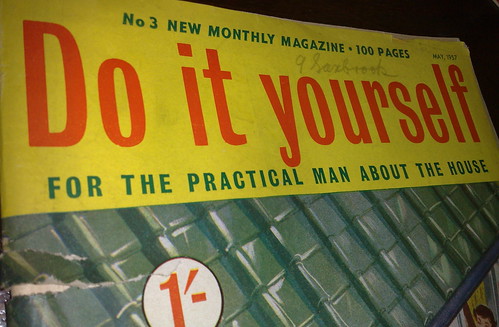 As you know, I was at Unconvention in Manchester at the weekend, on a panel titled Outside The Box.
As you know, I was at Unconvention in Manchester at the weekend, on a panel titled Outside The Box.
On the way up there, on my epically crap train journey, I wrote down a load of ideas for the session, some of which I shared, some of which there wasn’t time for – so here’s that post, as a log of some of what was said, and a bit more besides. Feel free to add your own suggestions at the end, and DEFINITELY visit Martin Atkins’ site Tour Smart website.
If you’re not into playing live at all, the current ‘wisdom’ that recorded music is now an ‘advert’ for your live gigs sounds pretty hollow. Artists whose music is entirely studio-bound, whether they be a Steely Dan-esque studio band, or an all synth studio creation that’s not only not playable, but even if it was, would possibly be very dull.
So What Are The Alternate Models?
The traditional ‘publishing’ route, making money from film/TV/advertising/corporate usage is still very much a viable option, but definitely favours artists who either write to order, or are somehow part of the zeitgeist. Worth pursuing, but not a catch-all and certainly not something to rely on as your entire plan for your music.
If we start from the assumption that an audience of hundreds of thousands that aren’t earning you any money is a great problem to have to try and solve, then we can start to work creatively towards that without thinking of making money so much along the way. The truth is that at the moment – given the data we have on the way that people consume music – we can expect a certain percentage to still want to buy CDs, another chunk to be more familiar with iTunes than any other music buying platform, still more to use eMusic or Amazon… So as you pursue the spreading of awareness about who you are and what you do, the fact that some people pay for music they like as a matter of course means that you’ll be making money, based at least in part by how easily your website directs people to their shop of choice. (note – I really need to sort out the shop links on my site!)
So How Does Your Music Get Out There?
Multi-media is one route – while video may have killed the radio star, it has certainly been the launch of many a soundtrack (even established artists often have their biggest hits when their songs get used in films – Wet Wet Wet, Bryan Adams… same for modern awareness of classical orchestral works…)
Therefor, hooking up with film students, sourcing film makers via social networks like Vimeo or using DeviantArt to collaborate with painters and designers on visuals that accompany your music can make it sharable in online communities that trade in video not in audio.
Is your creative process in any way interesting to other music makers? If you’re doing anything innovative or unusual, it’s quite easy to either record a performance of part of the music that visually focuses on that element of your music making, or to do a tuitional video that explains how you do it (my most watched video on youtube – by MILES – is a looping tutorial). These can also serve to let people see a human side to what you do, especially if you’re an instrumentalist. I love hearing my jazz/improv heroes talk about their process, ideas, etc.
Promote others to promote yourself – do you know another bunch of musicians in your area that you could interview for a podcast about music making? They don’t have to be in your area even – the delineation could just as easily be sylistic and you could do the interviews on Skype instead of face to face. If you choose artists who have a bit of a following but aren’t particularly web-savvy, you’ll be doing them a big favour too – my interview with Alex Webster of Cannibal Corpse on youtube has been watched by thousands of people – gave him a chance to talk about his amazing technique, and has lead to a lot of ‘I didn’t know you and Alex were friends!’ type comments from people who know me and listen to Cannibal Corpse. I’m not likely to pick up a load of new death metal fans off the back of it, but the association is one that broadens our audience’s perception of both of us.
Provide music for gallery shows – you may not be able to play live in the conventional sense, but if you do have music that would work for a specific event, it’s quite possible to collaborate on a gallery event with a visual artist. You could even do a limited edition CD that featured their art and your music, in a much higher value package – a catalogue for the show that also features the music that was playing on the night. That’s much harder to do with live music, but easy to do if you’re the ‘music curator’ of the event, and the music is pre-recorded – look for situations where being prerecorded is an advantage over live, and make the most of it, maximise your strengths rather than pretend you don’t have weaknesses…
One of my favourite experimental marketing thinkers at UnConvention was a guy called Vijay Nair, and I grab a little interview with him via Audioboo to get some of his ideas recorded:
Merchandise is a particularly fertile area, and one I’ll leave to you lot in the comment – what are the best music-related merch items you’ve ever seen? What would you like to see from the artists you listen to? Free your mind, and the comments will flow 🙂
